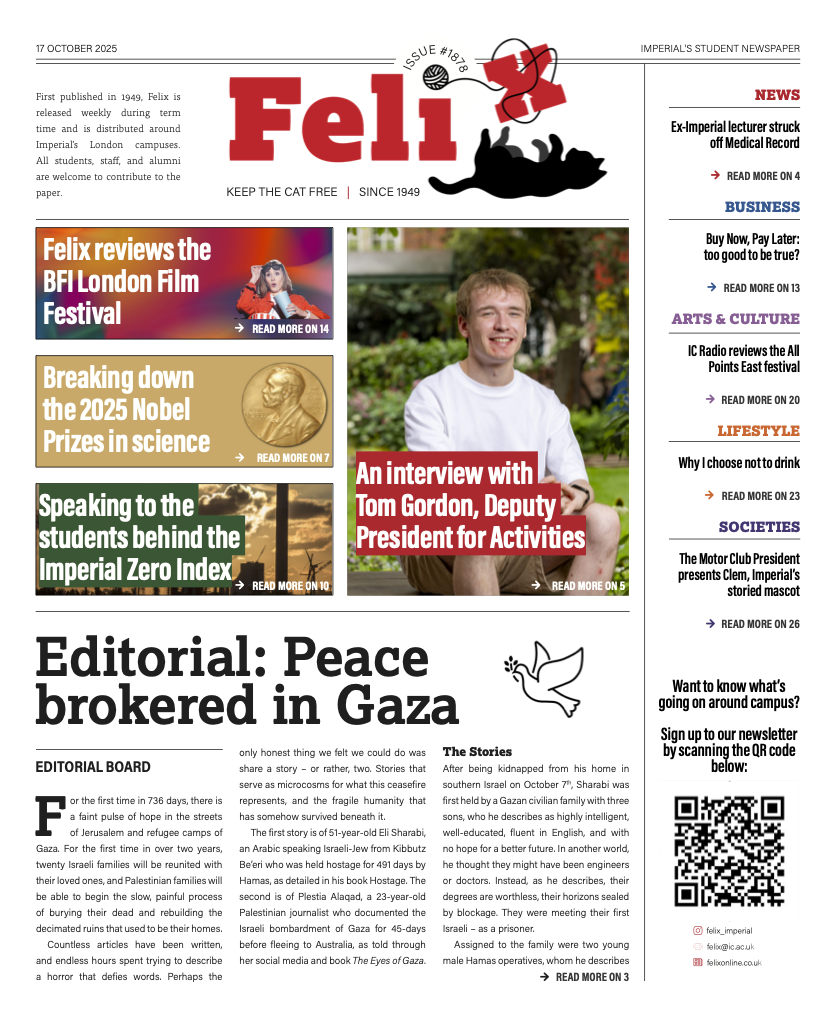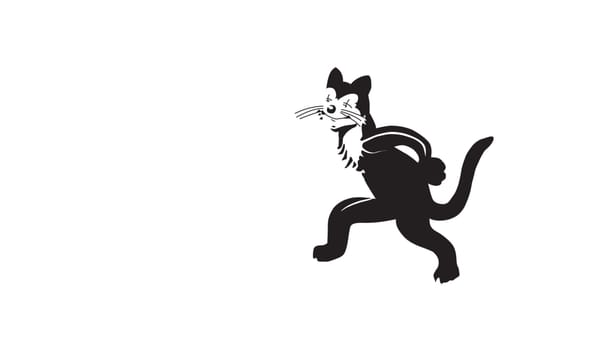Peace brokered in Gaza
For the first time in 736 days, there is a faint pulse of hope in the streets of Jerusalem and refugee camps of Gaza. For the first time in over two years, twenty Israeli families will be reunited with their loved ones, and Palestinian families will be able to begin the slow, painful process of burying their dead and rebuilding the decimated ruins that used to be their homes.
Countless articles have been written, and endless hours spent trying to describe a horror that defies words. Perhaps the only honest thing we felt we could do was share a story – or rather, two. Stories that serve as microcosms for what this ceasefire represents, and the fragile humanity that has somehow survived beneath it.
The first story is of 51-year-old Eli Sharabi, an Arabic speaking Israeli-Jew from Kibbutz Be’eri who was held hostage for 491 days by Hamas, as detailed in his book Hostage. The second is of Plestia Alaqad, a 23-year-old Palestinian journalist who documented the Israeli bombardment of Gaza for 45-days before fleeing to Australia, as told through her social media and book The Eyes of Gaza.
The Stories
After being kidnapped from his home in southern Israel on October 7th, Sharabi was first held by a Gazan civilian family with three sons, who he describes as highly intelligent, well-educated, fluent in English, and with no hope for a better future. In another world, he thought they might have been engineers or doctors. Instead, as he describes, their degrees are worthless, their horizons sealed by blockage. They were meeting their first Israeli – as a prisoner.
Assigned to the family were two young male Hamas operatives, whom he describes as shockingly young and almost childlike in their naivety. One of their first questions was, “Why do Israelis want to kill us all?” The question shocks him. He insisted it is not true and that Israelis don’t want this. But they pointed to the frequent bombings that have shaped their entire lives. Neither could make the other understand. Each thought the other was denying an obvious reality. Later, one of the Hamas operatives tells him, “It would be different if more Israelis were like you.” Again, they refused to believe him when he said most Israelis were.
A bombing of the apartment next door forces them to relocate into tunnels, leaving behind the family. As conditions in the Gaza strip continued to worsen, he Sharabi began to hear them his captors cry at night – their voices mixed in with cries of his own. He notes that they weren’t fighters. One day, they are called into battle by Hamas. They crawled out of the tunnel and never returned.
Perhaps not so far away, Alaqad moved between neighborhoods in northern Gaza. She recalls that a day before the war had started, she was looking at Gaza’s skyline from a rooftop, admiring the buildings and the sea. A few days later, she would post videos of those buildings collapsing.
Her career as a journalist would consist of documenting the destruction, displacement, and fear that consumed her city. She reported on bombed schools, hospitals, churches, and mosques – on Palestinian families missing under rubble. During her time reporting on the bombardment of Gaza, Alaqad was accused by some Israelis of being affiliated with Hamas. But she was not, and she could not understand why her homeland was being reduced to dust, its people scattered into tents and camps.
Her press vest weighted heavily, literally and figuratively. People now counted on her for intel and information, but she had none. Countless days passed as whole communities were displaced, not knowing what the future had in store for them.
Alaqad’s family was amongst those displaced Khan Younis before being granted humanitarian visas to Australia. During those weeks in Gaza, she witnessed starvation, amputation, and death. Like the two million Palestinians displaced from their homes into camps that lacked food and shelter, she faced the despair of watching her city and home vanish.
Through Sharabi’s captivity, he encountered more cruelty and desperation. He met fathers unable to provide a livelihood of their families, and men unable to get married due to the lack of jobs. The theme is two people completely cut off from each other’s reality and deep Palestinian despair. In Gaza, sealed by Israel and Egypt, misery felt unending.
Sharabi could not make his captors see that most Israelis did not hate them or wish them harm. They could not make him see that, from inside Gaza, Israeli policy looked indistinguishable from annihilation. Both are trapped in their own truths, neither complete. The cruelty was arbitrary, the logic circular.
This is not to say that everyone he encounters is driven by economic hopelessness. Several of his captors delight in starving him when he fails to recite Quranic verses properly – an action squarely at odds with the principle of no coercion in Islam (“there is no compulsion in religion.”). Others made nonsensical statements demanding he return to Yemen, where his grandparents are from – a country partially controlled by the Houthis, a group with the motto “Death to Jews”. However, even in the darkest moments, several of the Hamas operatives disobey orders and sneak food to him.
Before he is released, one of the senior Hamas operatives turns to him and says, “I’m sorry about October 7th. It was a mistake.” Sharabi never learned what kind of mistake he meant – a moral mistake? A tactical one? Regret for the violence itself or just for what it cost? The ambiguity haunts him.
Sharabi was eventually released in a hostage deal. Only then did he learn that his wife Lianne and two young daughters were murdered on October 7th by Hamas – a fact he surmises his captors knew but hid from him to prevent his utter despair and collapse. His brother Yossi had also been kidnapped on October 7th into Gaza and killed in an IDF airstrike.
Alaqad, meanwhile, escapes to Australia, haunted by her survivor’s guilt and unsure how to belong outside of Gaza. While her voice continued to make its mark, many of her colleagues and friends had been killed in airstrikes, and she carried the guilt of having lived. Anas al-Sharif, Samer Abudaqa, Hossam Shabat, three Palestinian journalists who worked for Al Jazeera and were killed while reporting on the Gaza war by Israeli airstrikes... All gone.
She tries to navigate this death, finding solace in their martyrdom. “It’s an act of giving meaning to the worst loss a person can possibly endure. We don’t celebrate death – but death is all around us, and we need a way to convert it back to life,” she writes.
While Alaqad left her shattered world behind, Sharabi enters his, both facing new hardships as the war went on without them there, in the centre. 1,200 Israelis were killed on October 7th and over 60,000 Palestinians have been killed since. Somewhere in between, the purpose of this war was lost.
The Aftermath
Sharabi and Alaqad’s stories capture both the moral collapse and the human exhaustion on all sides. Their experiences suggest that if a ceasefire is to mean anything, it must begin with the recognition that maximalist narratives and detached realities can only lead to a more shattered world. And that Israelis and Palestinians deserve leadership who recognise that fact.
For the first time in not only 736 days, but in 76 years, both Palestinians and Israelis cheer for the same thing on the same day - peace. But the war does not end when bombs stop falling. The space to feel its repercussions has only just opened, and it is in that fragile space – between grief and survival, between two fractured realities – that hope might begin to take root.
Readers are encouraged to read the book Hostage by Eli Sharabi and The Eyes of Gaza: A Diary of Resilience (2025) by Plestia Alaqad for themselves. These are autobiographical books with complex meanings and multiple interpretations written by living authors. This editorial does not seek to speak for them or their experiences. Only to share.








